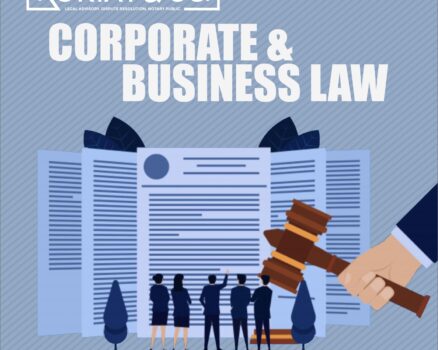
Winding up is a legal proceeding or procedure that may be initiated to end the life of a company. Winding-up is different from dissolution. The former is a means to an end, the latter is the end. During winding up, a company ceases to do business. The process involves paying off creditors and distribution of company assets to shareholders. The result of winding up a company is the death of the company (i.e. dissolution). A company is deemed dissolved if, on the application of a liquidator, the court expressly orders its dissolution or automatically dissolved after three (3) months of the receipt of the final account and returns of the company by the Corporate Affairs Commission.
The procedure for winding up a company by court order is expressly provided in the Companies and Allied Matters Act 2020 (“CAMA”). The relevant issues and considerations in the procedure are highlighted below:
1. How can a company be wound up in Nigeria?
Section 564(1) of the CAMA provides three (3) ways for winding up a company, namely:
(i) winding up by an order of a federal high court winding up a company; or
(ii) voluntary winding up of a company by members of a company; or
(iii) winding up by creditors of a company subject to the supervision of the court. See also Oredola Okeya Trading Co. & Anor v. Bank of Credit & Commerce Int’l & Anor (2014) LPELR SC.
2. Which court has jurisdiction to wind up a company?
The Federal High Court (“the Court”) is vested with jurisdiction to wind up a company. So, a petition for winding up a company can be filed at the judicial division of a federal high court whose area of jurisdiction the registered office of the company is located. See Sections 570(1) and 868 of CAMA. See also the case of Mercantile Bank of Nigeria Plc v. Nwobodo (2000) 3 NWLR (Pt. 648) 297.
3. Under what circumstances can a company be wound up by the court in Nigeria?
Pursuant to Section 571 of CAMA, a company may be wound up by the court if –
(a) the company has by special resolution resolved that the company be wound up by the court;
(b) default is made in delivering the statutory report to the Commission or in holding the statutory meeting;
(c) the number of members is reduced below two in the case of companies with more than one shareholder;
(d) the company is unable to pay its debts exceeding N200,000. In Tandy v. The Harmony House Furniture Co. Ltd (1964) 1 NCLC 18,the Supreme Court held that insolvency and inability to pay debts are grounds for winding up a debtor company.
(e) the condition precedent to the operation of the company has ceased to exist; or
(f) the Court is of opinion that it is just and equitable that the company should be wound up. See Ado Ibrahim & Co Ltd v. Bendel Cement Co Ltd (2007) LPELR (SC).
Please note that in Tandy v. The Harmony House Furniture Co. Ltd (1964) 1 NCLC 18,the Supreme Court held that insolvency and inability to pay debts are grounds for winding up.
A company is deemed to be unable to pay its debts if a creditor to whom the company is indebted in a sum exceeding N200,000 then due, has served on the company a demand letter at its registered office and the company has for three weeks after the service of the demand letter neglected to pay the sum or compound for it to the reasonable satisfaction of the creditor. See Section 572(a) CAMA.
Please note also that a company will also be held to be unable to pay its debts if it fails to execute the judgment or order of any Court in favour of the creditor of the company. See Section 572 (b) CAMA.
4. When does winding up by the Court commence?
Winding up by the Court commences at the time of the presentation of the petition for winding up. Section 578(2) CAMA. Where a company is being wound up by the Court, any attachments, sequestration, distress or execution put in force against the estate of the company after the commencement of the winding up, excluding fixed charge or any other validly created and perfected security interest other than a floating charge, is void. Section 577 CAMA.
5. Who can bring a petition to the court for the winding up of a company in Nigeria?
Section 573(1) CAMA provides that a petition for winding up of a company may be presented by any of the following persons:
- the company (acting at a general meeting or by special resolution) or a director of the company;
- a creditor (including a contingent or prospective creditor) of the company;
- the official receiver of the company;
- a contributory;
- a trustee in bankruptcy to, or a personal representative of, a creditor or contributory;
- the Corporate Affairs Commission;
- a receiver, if authorized by the instrument under which he was appointed; or
- by all or any of those parties, together or separately. See also N.D.I.C. v. Financial Merchant Bank Ltd (1997) LPELR-2001(SC)
- A supervisor of a voluntary arrangement of the company. See Section 442 (4) CAMA
- The administrator of the company. See 10th and 11th Schedule, para.21, CAMA
Please note that an ordinary creditor and a secured creditor have equal power to present a winding-up petition against a debtor company. See the case of Nationwide Development Company Ltd v. United Bank for Africa Plc (1995) 2 NCLC 742 CA
6. What is the status of the legal personality of a company during winding-up?
Under Nigerian law, the legal personality of a company remains the same during winding-up. The commencement of winding up proceedings does not result in the death of the company and its legal personality. A company can sue and sued in its corporate name even during winding up unless it has been dissolved.
In Progress Bank Of (Nig.) Plc v. O.K. Contact Point Holdings Ltd (2008) 1 NWLR (Pt 1069) 514, the Applicant filed a motion for departure from the rules in which it prayed for an order of the Court of Appeal to allow it to compile the records of appeal. The Respondent opposed the application on the ground that the Applicant had been wound up and liquidated, therefore the Applicant being dead cannot appeal or maintain an action in court. The Court of Appeal held that the revocation of the licence of the company and order of court winding up same did not indicate its death as there was no proof that the company had been dissolved.
Please note that if a winding-up order is made or provisional liquidator is appointed, no action or proceeding shall proceed with or commence against the company except by leave of the Court given on such terms as the Court may impose. See Section 580 of CAMA.
Please note that upon the grant of a winding-up order by the Court, a copy of the order must be forwarded to CAC immediately (or otherwise as may be prescribed). The CAC shall make a minute of it in the company’s records. See Section 579 CAMA.
Once a winding-up order has been made or a provisional liquidator appointed, an action or proceeding with or against the company shall only commence by leave of the Court. See Section 580 CAMA.
It is noteworthy that CAMA prohibits the commencement of an action against a company without leave of court and not the company proceeding against persons. In Reg. Trustees of Mission House Int’l v. All States Trust Bank Plc & Ors. (2021) LPELR SC 58387, the Supreme Court held that if a winding-up order is made or a provisional liquidator is appointed, no action or proceeding shall be proceeded with or commenced against a company except by leave of the Court given on such terms as the Court may impose.
7. What is the effect of a Dissolution Order of the Court on a company?
A company dies once the Court orders the dissolution of the company. See Section 617(1) and (2) of CAMA. Thereafter, a liquidator is appointed to ensure the smooth burial of the company. See Progress Bank Of (Nig.) Plc v. O.K. Contact Point Holdings Ltd (supra).
8. Can a Dissolution Order be made void by the Court?
Yes. A company that has been dissolved by the Court may, at any time within two years of the date of dissolution, on the application of the liquidator or any other person who appears to the Court to be interested, make an order declaring the dissolution void. Such proceedings will be taken as might have been taken if the company had not been dissolved. Section 691(1) CAMA. An Applicant must within seven (7) days after the making of the order or such time as the Court may allow deliver a copy of the order to the CAC.
10. Under what circumstances will a company be wound up subject to supervision by the Court?
Where a company passes a resolution for voluntary winding-up, the Court may on a petition order that the voluntary winding-up continue but subject to supervision of the Court. Creditors, contributories and others may make such applications for winding up subject to the supervision of the court. See Section 649 CAMA.
Please note that a petition for continuation of a voluntary winding-up subject to the supervision of the Court is deemed to be a petition for winding-up by the Court. See Section 650 of CAMA.
The Court in making the supervision order may appoint an additional liquidator to act with the existing liquidator. See Section 652 of CAMA.
11. What is the effect of the commencement of winding-up subject to the supervision of the Court?
Once winding up subject to the supervision of the Court commences, any attachment, sequestration or execution put in force against the assets of the company is void. See Section 661 of CAMA.
Also, as provided under Section 653(1) of CAMA, once a supervision order is granted, a liquidator, subject to any restrictions imposed by the Court, is to exercise all his powers without the sanction or intervention of the Court, in the same manner as if the company were being wound up voluntarily.




